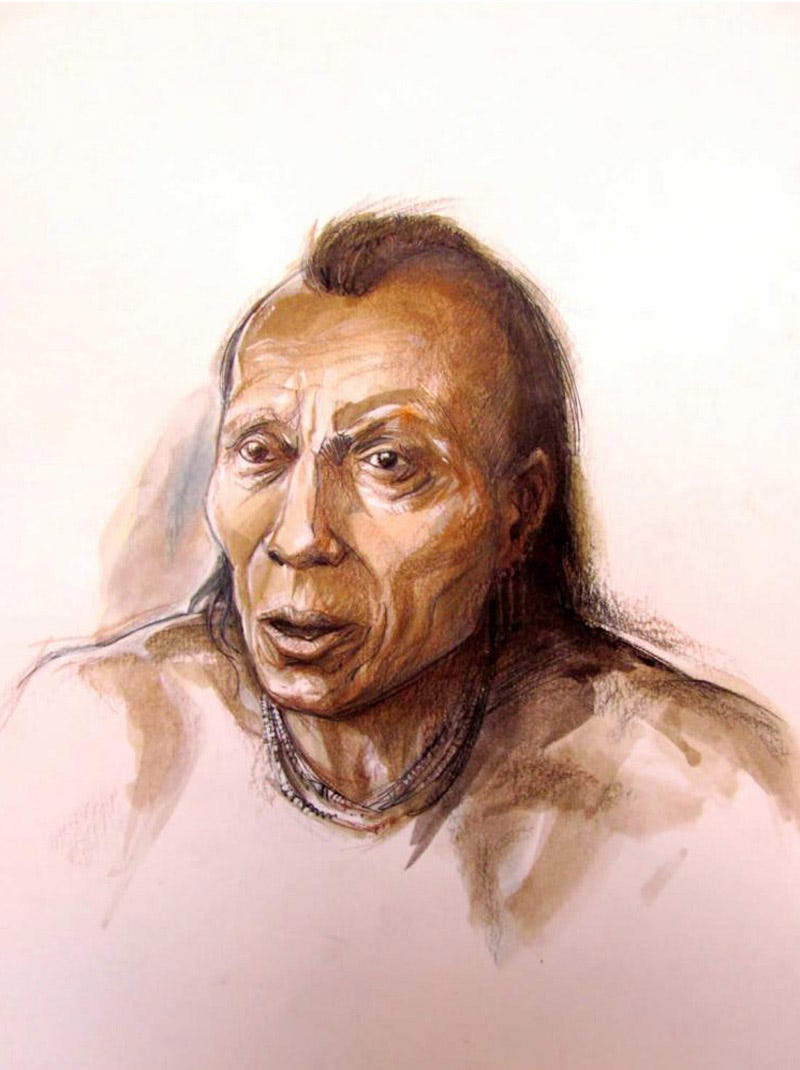Imagine a world with no riches or poverty
The father of the essay said this of the American Indian
When he was 22 the Baron de Lahontan met a Wyandot Indian who changed his life, a man who turned on the light which enabled the European Englightment. Essentially, The Englightment was when the Western intellects of the time realized that hierarchy topped by a monarchy was not the only way people can live.
From this Indian, Kandiaronk by name, Western thought was turned around. He told them of the egalitarian heterarchy that shaped the cultural core of the original Americans, a culture where, we are told, humans were essentially free.
George E. Sioui, a proponent of autohistory and author of For an American Autohistory, said that Lahontan was “able to capture and decode the essence of the American way of being, and to offer to the greatest minds of Europe … an enlightment they could recognize. In fact, Lahontan’s work had an indisputable and undisputed influence on the greatest thinkers of the day: Rousseau,Voltaire, Chateaubriand, Diderot, all drew on him abundantly.”
What they were drawing from was Baron Lahontan’s three primary books, one ironically named Dialogues avec un Sauvage (Dialogues with a Savage). Ironic, because the ‘savage’ taught the intelligensia how to be civilized.
What he taught them began with what they had not. In a litany similar to George Catlin’s famous observation of the Indians he knew 160 years later, French essayist Montaigne wrote, “This is a Nation, I should say to Plato, in which there is no sort of traffic, no knowledge of letters, no science of numbers, no name for a magistrate or for political superiority, no custom of servitude, no riches or poverty, no contracts, no successions, no partitions, no occupations but leisure ones, no care of any but common kinship, no clothes, no agriculture, no metal, no use of wine or wheat.”
Montaigne’s observations weren’t always accurate. He says they had no agriculture yet Kandiaronk was born into the Tionontati or Petun Nation also called Tobacco Nation by the French because of their primary trade crop was tobacco. (The Wyandot were formed by remnants of tribes descimated by the Iroquois throughout Huronia in the 1640s.)
He says they had no metal but the Copper Culture is one of the oldest in the world and copper was a long distance trade item from before 5,000 BC.
Montaigne says this Nation has no traffic by which he could mean trade or actually traffic. We know the Indians had long distance trade routes going back thousands of years so he’d be wrong on that count. But if he meant traffic by wheeled vehicle he’d be right.
He says this Nation has ‘no science of numbers’ but is that true? The mound building tribes of that time and earlier certainly had numerical knowledge. Ancient earthwork construciton is replete with numerical parallels.
While this Nation did not know the alphabet, they did have a certain knowledge of letters, if by letters we mean symbolic conveyances whereby knowledge is captured in a permanent form via the human hand and an intermediary device.
The famous Walam Olum of the Deleware is only one of many talking sticks. It depicts the history of the people generation after generation. Two thousand years ago, the Adena made plates which would allow the message on the plate to be replicated over and over again. These plates contained intricate patterns yet what are our letters but intricate patterns we uniformly recognize.
But besides those minor quirks, the rest of what Montaigne wrote was apparently true and is worth repeating. I’ll start with ‘no riches or poverty’. Imagine no riches or poverty. Now apply that image to our time. It doesn’t fit, does it? In fact, it is so far fetched as to seem impossible. Yet what Montaigne said in the 17th Century, Lahanton said in the 18th century and Catlin said in the 19th. Maybe it is true. An entire continent of people with no riches, no poverty, no jails, no stealing, no magistrates, no courts, no political superiors, no contracts, no to all the things that make our society what it most essentially is, destructive of the human being and our environment.
And finally, no to the knowldge that there is no other way. Know thou that there is. (But ‘no wine’?)
Keep reading with a 7-day free trial
Subscribe to Acorn Archive to keep reading this post and get 7 days of free access to the full post archives.




